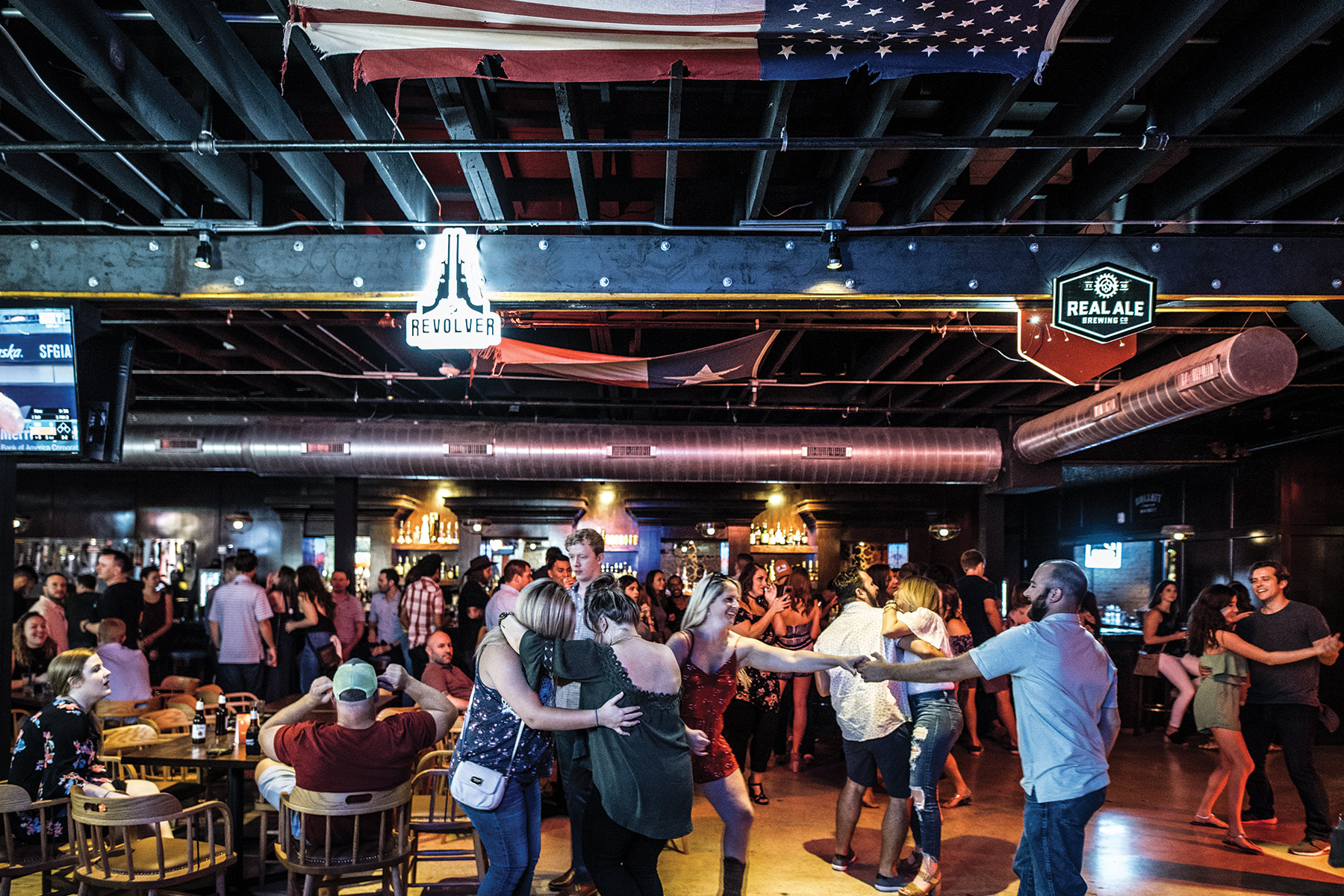Live music venues and performers in Dallas Fort-Worth are struggling to get back on their feet as they recover from the pandemic-related closures of 2020. Many of these organizations turn to federal grant programs, but they often aren’t enough to keep the venues afloat.
Venue owners seek help via the Small Business Administration’s Shuttered Venue Operators Grant Program (SVOG), which provides money to entertainment venues, performers, or cultural art institutions. But the $16.2 billion grant program has been slow to send money to venues and cultural art institutions, with only one North Texas venue receiving the grant money.
Mama Tried Deep Ellum, an outdoor country music club and bar in Dallas has been hanging by a thread since reopening in October, says owner Brooke Humphries.
“Just because places are packed right now doesn’t mean that a magic wand is waved and that 2020 is erased,” she says. “That’s not how it works. We all have accumulated debts from the months that we were closed, and our balance sheets are insane.”
Although the venue received grant money for the SBA’s Paycheck Protection Program (PPP), it was only a small bridge.
“It’s not a lot,” Humphries says. “Us venues don’t have massive payrolls. It is all based on payrolls. You know, small businesses don’t have huge payrolls.”
According to the SBA website, the SVOG program provides applicants with grants equal to 45 percent of their gross earned revenue, up to a maximum of $10 million.
Since Mama Tried Deep Ellum serves food, they could apply for the Restaurant Revitalization Fund but could not receive any funding. They were unable to apply for the SVOG grant because of their application for the Restaurant Revitalization Fund.
“This is an actual blanket to cover some issues. It’s big enough money to cover issues,” Humphries says. “They’re complicated programs, but it’s the difference between staying open or closing.”
Despite funding difficulties, Mama Tried Deep Ellum stayed afloat by booking country artists.
“I was lucky in the fact that country artists kept touring when nobody else was touring. I was grabbing artists that typically would play at a bigger venue,” Humphries says. “Now, I’m kind of unlucky in the same respect. Because the country artists are trying to make up for 2020, they’re touring a lot, which then dilutes your share of what you would have gotten for them before.”
Dallas-based music venue Gas Monkey Bar N’ Grill had to find alternative ways to continue operating; as soon as COVID cases started declining, they began to book touring concerts and increase foot traffic, says Marketing Director Jake Westerman.
“We changed our hours. We held fundraisers. We did auctions online. We sold stuff off the walls. I mean, we did 100 different things. We booked nothing but local talent for several months. We had cover bands non-stop. We changed our menu. We rebranded things,” he says.
Meanwhile, performers had to adjust to closing music venues as the venues they regularly performed at shut down or went through changes. President and CEO of Fort Worth Symphony Orchestra Keith Cerny says that when Bass Performance Hall, the orchestra’s normal performance hall, closed down, they had to find a new venue. The orchestra resumed live performances at the Will Rogers Memorial Auditorium in September for socially distanced audiences.
“For the current fiscal year, our earned revenue, which is mostly ticket sales and fees we received from other arts organizations in cities to provide orchestra, dropped by about 80% for this fiscal year, which was obviously a huge drop,” Cerny says.
The Fort Worth Symphony Orchestra is still waiting to hear back whether they received the SVOG grant. Cerny says the orchestra has adjusted to financial setbacks through increased donations from patrons, live performances, and two Paycheck Protection Program loans, each for $1.589 million.
“We’ve been very happy that our patrons have come to live performances and that people have contributed as well,” he says. “As of now, we have over a million dollars in subscription sales towards the upcoming season. And that’s not quite at pre-pandemic levels. But we’re still very gratified to see that it’s at that level.”






